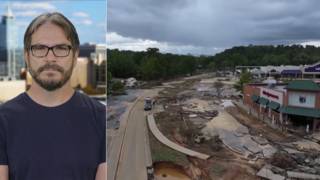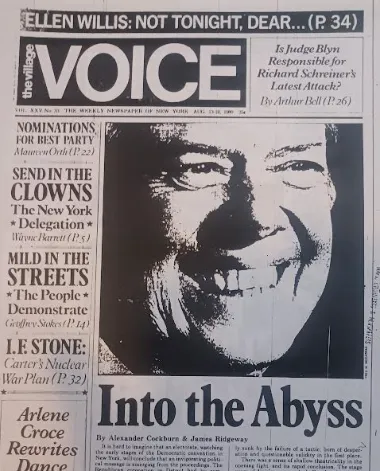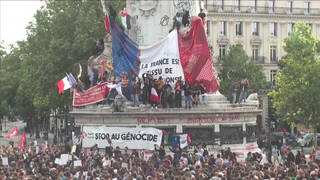BANGKOK – Thailand said Thursday there are no longer any Uyghurs stranded in its immigration facilities following the internationally criticized repatriation of 40 Uyghur men to China in late February, in an apparent move to put an end to the confusion over the total number of detainees.
Thailand put the men on a plane to Xinjiang on Feb. 27, saying China had given assurances that they would not be mistreated and no third country had committed to take them. They were part of a larger group who had been held at an immigration detention center in Bangkok since escaping China’s persecution in 2014.
“40 [Uyghurs] had been sent to China, while three had died, one in 2018 and two in 2023, leaving no Uyghurs remaining in immigration detention,” Thailand’s Police Col. Watcharaphon Kanchanakan, told a court hearing, without elaborating.
Separately, the Bangkok court on the same day dismissed a petition that sought the release of “43 Uyghur” detainees who had been held by Thailand’s Immigration Bureau, saying: “all the Uyghurs had already been sent back [to China].”
Confusion over numbers
The 40 deportees were among more than 300 Uyghurs who fled China and were apprehended in Thailand in 2014. Thailand deported 109 Uyghurs to China in 2015 and allowed around 170 Uyghurs to be resettled in Turkey.
However, the exact number of Uyghurs remaining in detention in Thailand has been controversial and uncertain, with recent reports stating that 48 men were still detained before the February 2025 deportation of 40 of them.
Human rights advocates argue that at least five are still detained in Thailand.
Bangkok-based human rights group, the People’s Empowerment Foundation reported that seven Uyghurs remained in Thailand – five in Klong Prem Prison for breaking out of Mukdahan Immigration detention in January 2020 and two defendants in the 2015 Ratchaprasong bombing case.
Thai authorities have denied prison visits to human rights groups and restricted access to proper legal consultation with lawyers, while allowing Chinese officials to conduct monthly headcounts of the detainees, according to Chalida Tajaroensuk, director of the foundation, who has been assisting the Uyghurs.
Krittaporn Semsantad, Project Director of the Peace Rights Foundation, said they have taken steps to appoint legal representatives for five Uyghurs detained at Klong Prem Prison to ensure they have proper legal representation. But these efforts proved futile, as access to the detainees remains restricted and legal consultations have been largely ineffective.
“We have made arrangements to appoint lawyers for all inmates so they can express their concerns about being returned to their country of origin [China] or the risk of persecution by their home country, indicating that this is not voluntary repatriation,” Krittaporn told BenarNews, a sister publication of Radio Free Asia.
“The detained group could not meet with lawyers because they were classified as a ‘special security group,’ but for those with the Department of Corrections, appointing lawyers can ensure their rights are protected because Justice Minister Tawee has stated that China wants these people back to their country,” she said.
Previously, the Thai government said it would also deport the five Uyghurs detained in Klong Prem Prison to China once they complete their prison terms.
Thailand’s deportation of 40 Uyghurs was heavily criticized by Western governments and human rights organizations, with the United States restricting visas for unnamed Thai officials involved in the deportation.
Twelve members of the U.S. House of Representatives introduced a bipartisan bill on Wednesday that would expedite the ability of Uyghurs and other ethnic minorities facing persecution in China to seek asylum in the United States.
RELATED STORIES
US bill proposes expediting Uyghur asylum cases
Journalists visiting deported Uyghurs in Xinjiang face Chinese surveillance
Thai delegation heads to China to check on deported Uyghurs
Amid mounting criticism, China invited Thai Deputy Prime Minister Phumtham Wechayachai, accompanied by journalists, for a three-day visit to Kashgar, Xinjiang, last week. The trip was intended to demonstrate the well-being of the recent deportees as well as those deported in 2015.
However, a Thai journalist who participated in the delegation reported being closely monitored by Chinese security officials throughout the visit. Observers also criticized the event as being “staged” and lacking transparency.
Since 2017, China has rounded up an estimated 1.8 million Uyghurs in concentration camps and subjected many to forced labor, forced sterilization and torture, based on the accounts of Uyghurs who have escaped and investigations by the United Nations.
Beijing denies committing human rights abuses against the Uyghurs and says the camps are vocational training centers that have mostly been closed.
Edited by Taejun Kang and Stephen Wright.
BenarNews is an online news outlet affiliated with Radio Free Asia.
This content originally appeared on Radio Free Asia and was authored by Kunnawut Boonreak for BenarNews.
This post was originally published on Radio Free.







